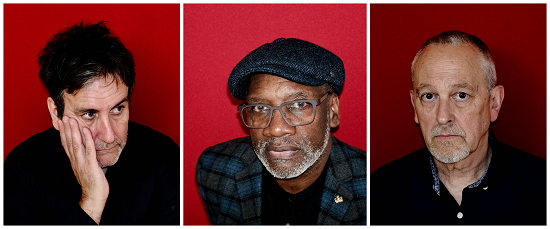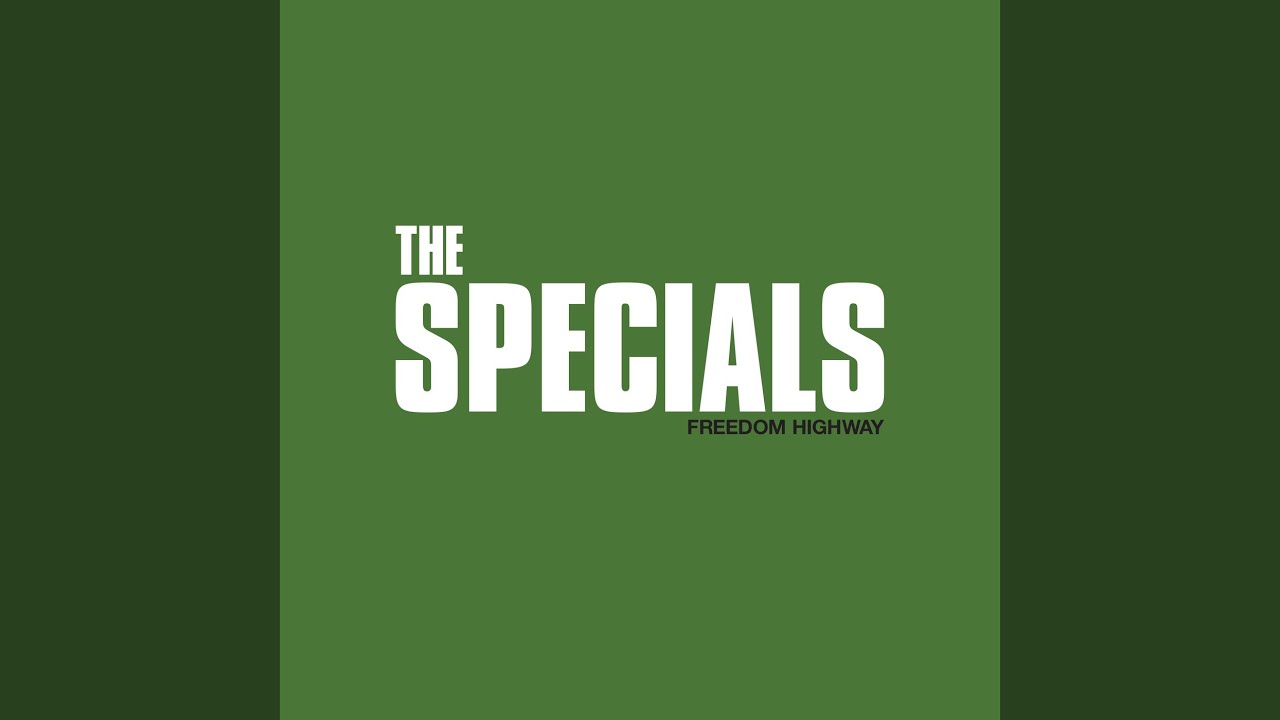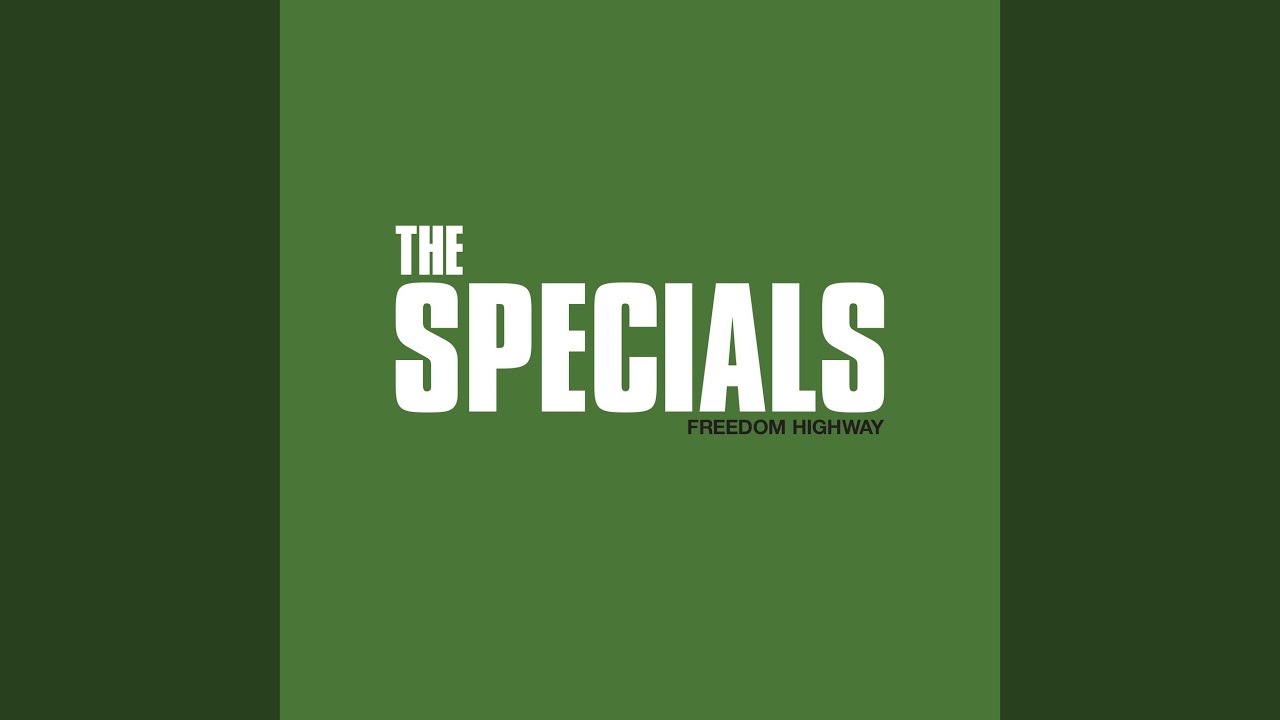Photos by Shane O’Neill
As protests began to surge across the US in the wake of George Floyd’s murder, The Specials’ Lynval Golding was in the small town in Washington State where he’s lived since the 1990s. Like many others, he took to the streets. “To see all these 14- and 15-year-old kids shouting ‘Black Lives Matter’, it was a fantastic feeling,” he tells tQ over the phone. While on the march, he encountered a man in a camouflaged jacket wielding an M16 rifle who had taken it upon himself to ‘protect’ local shops from the protestors. “When I walked past him, he said ‘These goddamn kids, they don’t know what they’re talking about!’ So I said, ‘Don’t you realise what’s happening? They’re learning.’”
It’s not hard to draw the lines and make connections between movements like Black Lives Matter and The Specials, a band whose multi-racial membership was a political statement in itself. Whether in their late 70s and early 80s heyday, where songs like ‘Doesn’t Make It Alright’ confronted the era’s grim racial divide head-on, or in their recent resurgence – 2019’s comeback album Encore opened with a cover of Eddy Grant and The Equals’ ferocious ode to diversity as an act of defiance, ‘Black Skin Blue Eyed Boys’, and contained a monologue by Golding called ‘B.L.M.’ in which he recounts the various racist abuses he’s faced across his life in both the US and UK – it’s a spirit that’s never left them.
Golding and I are speaking a few days after England’s loss to Italy in the final of Euro 2020. The racist abuse directed at Marcus Rashford, Jadon Sancho and Bukayo Saka, three Black players who missed penalties, is still front-page news. When the subject comes up, he sings into the opening lyrics from Encore track ‘Embarassed By You’. “We never fought for freedom for nasty little brutes like you to undo the work we do”, before adding: “It is depressing, but we’ll carry on being strong. I’ve got my England shirt and nothing at all is going to stop me wearing it. I have to live with this colour for all of my life, and I’m proud of it. But this is what I have to carry around 24/7: walking down the street and looking behind me in case someone’s going to jump me. I’ve been stabbed. I’ve been beaten up in a race attack. So I support Black Lives Matter because I’ve been there.”
It was that kind of undampened political fire, combined with the wisdom of age, that meant that Encore outstripped all expectations. A record brimming with righteous rage and despair, it was an unexpected critical and commercial hit. “Achieving a first number one album in our 60s restored our faith in humanity,” says frontman Terry Hall in an email. Spirits were high, then, when The Specials reconvened in February 2020 to start work on its follow up. The prospect of going to Jamaica – birthplace of Golding and former member Neville Staple – to record what the former calls a “backyard feel” reggae album, was being strongly considered. “It felt very positive,” recalls Hall. “Unfortunately, we all know what happened next.”
“The pandemic threw everything out of the window,” says Golding. He and Nikolaj Torp Larsen, their keyboard player since reforming in 2008, both became seriously ill with COVID-19. “I was in bed for about a week and a half, I couldn’t eat, you could see the sweat dripping off me.” Meanwhile, Hall was struggling mentally. He found it impossible to write lyrics for the musical ideas they’d been trading back in February as planned. “The arrival of the pandemic affected me enormously,” he says. “I spent around three months trying to figure out what was going on. I couldn’t write a single word. I spent the time trying to figure out how not to die.”
Across the following months, “paranoia, inertia and lethargy” had taken hold, bassist Horace Panter says in a separate phone call. “We just went to ground.” By the time The Specials were able to meet up again between lockdowns last summer, says Golding, “we couldn’t get any vibe at all. The lockdown takes all your creativity away from you.” The band were in dire need of inspiration. “I knew my head wasn’t in the best place to create,” says Hall, “I then thought about the worldwide protests.” Rather than struggle to write lyrics, he instead “started to listen to protest songs throughout the years and which ones felt relevant. We then talked about the chance of returning to the studio and just letting ourselves be in a band again. Square one. Doing a covers album felt like a good project.”
They have no qualms about referring to Protest Songs as a stopgap between full-blown Specials records. “It was a feeble excuse to just get in the studio and make a joyous noise together,” says Panter. “It’s going to sound really bad, but I don’t think a lot of thought went into this album,” he laughs. “That’s not to belittle the project, what I mean is that it wasn’t planned. It was something quick to restore our sanity.” It cleared the air; sessions were a breeze. “When we were doing Encore I seem to remember doing the backing tracks and Terry would be sitting at the back of the control rom with this big notebook full of lyrics, mouthing words to see if they’d fit. This time that wasn’t an issue because the words were already there.”
In fact, the hardest thing about Protest Songs was picking what to cover. Each of the band threw ideas into the hat, reflecting their individual tastes and histories. Among others, Panter looked to ‘Trouble Every Day’ from Frank Zappa and The Mothers Of Invention’s Freak Out!, which first struck him as a teenager, about the Watts Riots that followed police brutality against the Black community in 1965. Bob Marley’s ‘Get Up Stand Up’ was Golding’s idea. “That’s the biggest protest song in my eyes,” he says. Hall, meanwhile, scoured the internet for relative obscurities like ‘I Don’t Mind Failing In This World’ and ‘I Live In A City’ by singer-songwriter and activist Malvina Reynolds, and country singer Chip Taylor’s 2012 song ‘Fuck All The Perfect People’, originally written with incarcerated people in mind. “I think I ended up picking the smaller, more personal protest songs”, Hall says. “I’m a little bored with shouting from the rooftop. I like the idea of finding like-minded people and having a bit of a moan.” Few of the songs are obvious choices. There’s no Dylan, Guthrie or Baez. “Everyone knows ‘Eve Of Destruction’, everyone knows ‘Give Peace A Chance’,” says Panter. “We wanted stuff that maybe is a little bit more obscure, a bit different.”
As well as lifting them from a pandemic-enforced creative rut, a record of protest covers made perfect sense as a format. “I suppose protest songs are what we’ve always done really, aren’t they?” continues Panter. Covers and reinterpretations have always been a part of The Specials’ sound; their entire career, from their debut single ‘Gangsters’ (a reworking of Prince Buster’s ‘Al Capone’) to Encore’s take on The Valentines’ ‘Blam Blam Fever’, is peppered with ska, reggae and rocksteady classics.
Yet what’s most striking about Protest Songs is quite how much it avoids resting on their established sound. Reggae is almost entirely absent, even when they’re covering Bob Marley himself; their version of ‘Get Up, Stand Up’ is a quiet, folky take, just an acoustic guitar arpeggio and Golding’s plaintive vocals. “Me and [guitarist] Steve Craddock wanted to make people listen to the song.” Pandemic-enforced writer’s block might have kept The Specials from writing their own lyrics this time around, but the words on Protest Songs are still hugely important.
Hall’s vocals, too, are as clean and direct as they have ever been. Instrumentation is often stripped back to its simplest – sparse licks of acoustic guitar or a gentle pump of double bass – which the band recorded live with barely any overdubs. “You have to listen to a protest song,” says Golding. “This record isn’t about club anthems.” Even the record’s most energetic moments, like ‘Ain’t Gonna Let Nobody Turn Us Around’, a Black spiritual song first recorded in the 1920s and then revived by the 1960s civil rights movement, are decidedly minimalist. The Specials’ version is looped around a simple, handclap beat and spartan jabs of guitar, punctuated only occasionally by rushing blasts of organ. ‘Listening Wind’, originally from Talking Heads’ famously lavish Remain In Light is stripped back entirely to horns and drums.
For most of the album, they’re exploring that American protest tradition. Whether ‘Freedom Highway’, the Staples Singers classic that became an anthem for civil rights activists’ 1965’s march from Selma to Montgomery in Alabama, Zappa’s song about The Watts Riots, The Gateway Trio’s ‘Soldiers Who Want To Be Heroes’, which was taken up by the anti-Vietnam War movement in the 1970s, or the relative obscurity ‘My Next Door Neighbor’ by Jim McCain And His Upstarts, which they unearthed on an album called Songs of Complaint And Protest issued by the US Library Of Congress, more often than not The Specials’ eyes are turned towards the other side of the Atlantic. Golding puts it down simply to the fact that those songs’ words remain particularly potent all these decades later, regardless of nationality. “Under the Conservatives they’re trying to pass different laws that literally take your rights away from you and give the police more power to lock you up for protesting,” he says. “We see the same images of police dogs that we saw in the civil rights movement, and we see how they got change. We have to fight for it. Bless those writers who wrote those lyrics back then because they’re still relevant today.”

Nevertheless, it’s still a bit strange, perhaps even jarring at first, to hear The Specials exploring folk and country music in such depth. They’ve always been more stylistically progressive than perhaps given credit for, however. There was less than a year between their debut and its follow-up More Specials, by which time they’d already departed from the established Two-Tone sound to dive headfirst into easy listening, lounge and mood music. “I think we were labelled a ska band on the first album,” says Hall.“More Specials put a huge dent in that label which was great. I have never put myself under any label. I think my work shows that.”
Golding concurs. “If it doesn’t ‘sound like The Specials’, well how does The Specials sound?” He credits the influence of Jerry Dammers, the band’s mercurial founding keyboardist, arranger and songwriter, whose boundary-pushing listening habits were a key influence until his departure from the group in 1984. “That guy wasn’t afraid to move artistically. Although obviously Jerry didn’t participate in this record, you can hear where his influences are. What we’re presenting from Encore to right here is not far away from what Jerry would be presenting to the audience now if we’d gone down the same road.”
The Specials’ decision to revive old protest songs, their lyrics still deeply relevant to our own society, is testament to their universality. It’s not too much of a stretch to say the same about The Specials’ own compositions. Not without reason is it often commented just how prescient a song like ‘Ghost Town’ is in a Britain still reeling from both Brexit and the coronavirus.
For Golding, this is bittersweet. He’s flattered at their enduring popularity, but says “I shouldn’t be singing ‘It Doesn’t Make It Alright’ now! We haven’t moved an inch! We’re running on the spot!” He starts singing ‘Ghost Town’ B-side ‘Why?’. “’Why did you try to hurt me? Tell me why, tell me why tell me why.’ Why have I got to be saying that 40 years later?” Back when they first recorded those songs “we thought ‘we’re breaking barriers down!’ But have we really broken those barriers down? They’re still there!” Despite it all, however, he remains hopeful. “I feel proud that the bright young kids, Black, white and everyone, are seeing the injustice of how Blacks are treated. It’s just so sad that George Floyd had to lose his life to bring people together.”
Although Protest Songs is not the tub-thumping, high-tempo ska-punk of old, like all the best protest songs it’s a record with a direct, simple kind of power. “Age has taught me that the quiet protest is equally as valid,” says Hall. “I’m at the stage where I will shout for everybody else who wants unity, love and togetherness, not literally shout, necessarily, but speak on their behalf because I know I’m here to represent them,” says Golding. Their new album might consist of other people’s songs, but The Specials themselves aren’t backing down any time soon.
The Specials’ new album Protest Songs 1924-2012 is released on September 24 via Island




